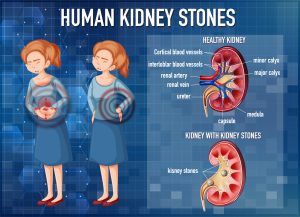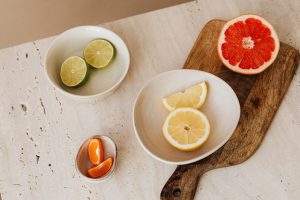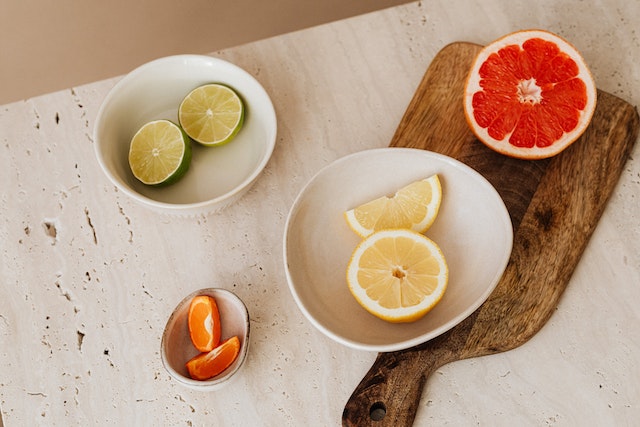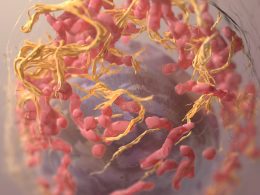Kidney stones, those small but excruciatingly painful crystalline formations that can wreak havoc on your life, are a common health concern. These hardened deposits can develop in your kidneys and cause severe discomfort as they travel through your urinary tract. The good news is that there’s a proactive approach to help prevent kidney stones: the Stone Stopper Diet. In this comprehensive article, we will explore the intricate world of kidney stones and how specific foods can play a crucial role in reducing the risk of their formation.
Understanding Kidney Stones:
Before we dive into the Stone Stopper Diet, it’s essential to understand what kidney stones are and what causes them. Kidney stones, medically known as renal calculi, are solid crystalline masses that form in the kidneys. They are composed of minerals and salts, primarily calcium oxalate or calcium phosphate. The precise cause of kidney stone formation can vary from person to person, but several factors contribute to their development:
- Dietary Habits: One of the primary factors is diet. Consuming foods rich in oxalate, a natural substance found in many foods, can increase the risk of kidney stone formation. Additionally, diets high in salt and animal protein can also contribute to stone formation.
- Dehydration: Inadequate fluid intake can lead to concentrated urine, which is more likely to promote stone formation. Staying hydrated is essential to help prevent kidney stones.

Image by brgfx on Freepik - Genetics: Some individuals are genetically predisposed to kidney stones. If a close family member has had kidney stones, your risk may be higher.
- Medical Conditions: Certain medical conditions, such as hyperparathyroidism, gout, and urinary tract infections, can increase the likelihood of kidney stone development.
Now, let’s explore how the Stone Stopper Diet can address these risk factors and play a pivotal role in preventing kidney stones.
The Stone Stopper Diet: Your Path to Prevention:
- Hydration is Key: Adequate hydration is a cornerstone of the Stone Stopper Diet. Drinking enough water helps dilute the minerals and salts in your urine, making it less likely for kidney stones to form. Aim to consume at least 8-10 cups of water daily. If you live in a hot climate or engage in physical activity, you may need even more.
- Calcium Balance: Contrary to what some may believe, reducing calcium intake isn’t the solution to preventing kidney stones. In fact, adequate dietary calcium is essential because it binds with oxalate in the intestines, preventing it from being absorbed into the bloodstream and excreted by the kidneys. Sources of dietary calcium include dairy products, leafy greens, and fortified foods. Consult with a healthcare professional to determine your specific calcium needs.
- Mindful Oxalate Consumption: While oxalates are found in many foods, they don’t affect everyone the same way. If you’re prone to calcium oxalate stones, it’s a good idea to monitor your oxalate intake. High-oxalate foods include spinach, rhubarb, beets, and sweet potatoes. Cooking these foods can reduce their oxalate content. Striking a balance between calcium and oxalate intake is crucial.
- Limit Salt and Animal Protein: Diets high in salt and animal protein can contribute to stone formation. Reducing your salt intake by avoiding processed foods and using herbs and spices for flavor can help. As for animal protein, aim for moderation and consider plant-based protein sources like beans, lentils, and tofu.
- Incorporate Citrus Fruits: Citrus fruits such as lemons, limes, and oranges can be valuable allies in your battle against kidney stones. They contain citrate, a compound that can help prevent the formation of certain types of kidney stones. Squeeze fresh citrus juice into your water or use it as a salad dressing.

Photo by Karolina Grabowska: https://www.pexels.com/photo/a-variety-of-citrus-fruits-6794057/ - Magnesium for Prevention: Magnesium-rich foods, like nuts and seeds, can be beneficial for preventing kidney stones. Magnesium helps bind with oxalate in the urine, reducing the risk of crystalline formations.
- Healthy Potassium Sources: High-potassium foods like bananas, oranges, and potatoes can promote a balanced pH in your body and decrease the risk of stone formation. They also contribute to overall kidney health.
- Limit Sugar and Soda: Excessive sugar consumption, especially in the form of sugary sodas, can increase the risk of kidney stones. Opt for water, herbal teas, or natural fruit juices instead of soda.
- Moderate Alcohol Consumption: Excessive alcohol consumption can lead to dehydration, which is a risk factor for kidney stones. If you choose to drink alcohol, do so in moderation and ensure you’re staying well-hydrated.
Conclusion: A Holistic Approach to Kidney Stone Prevention
The Stone Stopper Diet isn’t just about avoiding specific foods; it’s about adopting a holistic approach to your diet and lifestyle. By understanding the underlying causes of kidney stone formation and making mindful food choices, you can significantly reduce your risk of experiencing the pain and discomfort associated with kidney stones.
Remember, it’s essential to consult with a healthcare professional or a registered dietitian before making significant dietary changes, especially if you have a history of kidney stones or underlying medical conditions. They can provide personalized guidance and ensure that your dietary choices align with your specific needs.
Incorporating the Stone Stopper Diet into your life can be a transformative step towards better kidney health and overall well-being. With hydration, calcium balance, and thoughtful food choices as your allies, you can keep kidney stones at bay and enjoy a healthier, more comfortable life.












